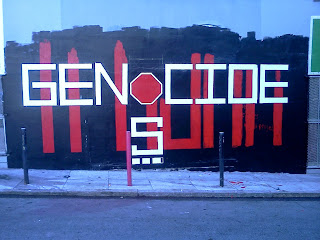I am not the first to note that our country
has the finest congress that money can buy.
I have heard many people whom I respect and admire complain of “the corrupting influence of money” on our politics. I used to make the same complaint
myself. The huge amounts of money spent
by individual campaigns, by the parties, and by other
groups and organizations, along with the largess afforded politicians by lobbyists, all seem to mean that
our government responds primarily to the needs and desires of the rich.
I have recently, however, come to doubt the premise that our government
is being corrupted.
The idea of corruption implies that something innocent (or,
if not innocent, at least something virtuous) existed at one time and that this
good thing has been or is being spoiled.
In the case of the government of the United States, complaining about corruption suggests
that our Federal institutions were established to ensure equality among all
citizens in their relations with the state. The fact that the wealthy have
a greater say in how the country is run than do ordinary folks is therefore called corruption. But I see no evidence in our history or in
the constitution itself to suggest that things were ever different or ever
meant to be different. The Founding Fathers clearly believed that government was properly the business of wealthy men.
Indeed, what is government for if not to function as a mechanism for the protection of
property? I think
that most Americans would agree that government should set and enforce the
rules governing economic interactions but that it should not meddle with our familial and our social interactions.
Government establishes
weights and measures and issues currency. For example, it is often said that “possession is 90% of the law,” which means that 90% of our laws are devoted to defining who possesses what. Disagreement over ownership has led to violent conflict throughout history, and we want these thingsto be strictly controlled.
But Americans also believe that government should have little to say about most social interactions. We are free to love whom we choose, hate whom
we choose, and play cards with whomever we wish, and we can worship the god of our choice.
Since governments exist to set and enforce rules governing
economic relations, and since in this country,
those relations are mediated through the exchange of money, the U.S. government’s reason
for being is to make and enforce the rules governing interactions that
involve money. After all, our constitution
explicitly denies to government the right to regulate most other social
interactions, such as speech, assembly, religious affiliations, etc. So what else would the government be for?
Our government was
instituted by people who had money, and never in our history have the
people who have money instituted a government that would take it away from
them. The Founding Fathers clearly
intended the government to be an exclusive club: their “democracy” was means-tested, and only
those who had a penis and a certain amount of land could vote.
I find it hard to believe that they did not intend money to influence politics.



















